The debate around what it means to call a female character “unlikable” best crystallized in a 2013 interview in which novelist Claire Messud confronted the interviewer’s point about not wanting to be friends with her grim protagonist Nora: “For heaven’s sake, what kind of question is that? Would you want to be friends with Humbert Humbert? Would you want to be friends with Mickey Sabbath? Saleem Sinai? Hamlet? Krapp? Oedipus?”
The women in these nine books aren’t here to make friends. Their ethics are compartmentalized, their relationships transactional. They destroy towns and lives with a twitch of the finger. They grapple with trauma without sugarcoating it. And not only are they compelling, but their existence is a reassurance and a recognition—they are, in the words of the words of Attack Surface’s protagonist Masha Maximow, “the secret, seething, silent majority.”
Masha Maximow, Attack Surface (Cory Doctorow)
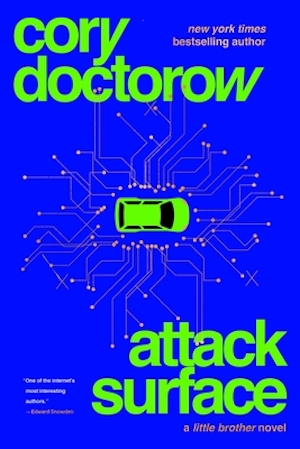
Compartmentalizing is Masha’s superpower: She can sleep easily (enough) at night knowing that she’s helped the U.S. government, or a transnational corporation, hack into bad guys’ emails and sneak past their firewalls in order to disable their monstrous plans. And when her conscience starts to itch, she assuages her guilt about helping The Man surveil with guerilla acts of hacktivism for her old friends. “Don’t take sides, pick your battles, and live to fight another day” is Masha’s mantra, but eventually she must confront her own privilege in compartmentalizing, and face the ugly truth that even the most well-intentioned person might be tempted to utilize the terrible power she’s given them.
Essun, The Fifth Season (N.K. Jemisin)
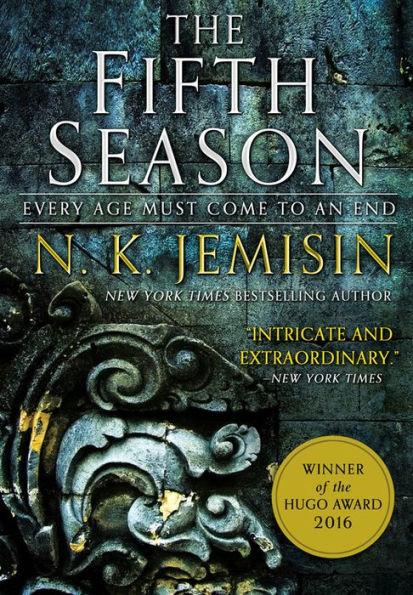
Every aspect of Essun—orogene, mother, wife, refugee, murderer—was deliberately constructed: She is a forty-something black woman. Trauma has made her terse, prickly, self-preserving, sometimes cruel, often destructive. She dissociates from reality, and so the story reflects that dissociation through second-person narration that nonetheless centers Essun, in all her unflattering or unsympathetic traits, as she copes with that trauma. Jemisin explains her reasoning in a fascinating blog post (but beware massive spoilers) about how the less frequently that older, non-white women appear in fiction, the less they are regarded as an empathetic figure—the less they are regarded as human. Of course, anyone who has read The Broken Earth trilogy knows how wholly unforgettable Essun is, precisely because of where she starts on her journey and where she ends.
Dakota Prentiss, Steal the Stars (Nat Cassidy)
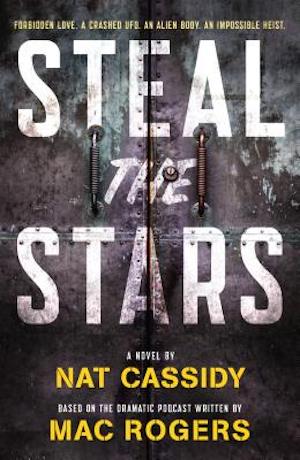
Dak, head of security at enigmatic Quill Marine, is brusque, guarded, snarky, bleak… so, a typical noir protagonist, except that she’s a woman. And like a hardboiled detective on the defensive for any lash-fluttering damsels in distress, Dak is very careful about following her workplace’s no-fraternization rules, whether that’s keeping coworker chats casual or resisting the urge for any office hookups. Until he shows up: Of all the top-secret government labs in all the country, Matt Salem had to walk into hers—torching the anti-fraternization edicts and endangering their extraterrestrial cargo. While Mac Rogers’ podcast has Ashlie Atkinson superbly perform Dak’s brittle wryness, occasionally revealing more vulnerable glimpses, Cassidy’s novelization gets to pull back those layers: exploring why Dak never thought herself deserving of love and why she’ll fight so hard for it now.
Fang Runin, The Poppy War (R.F. Kuang)
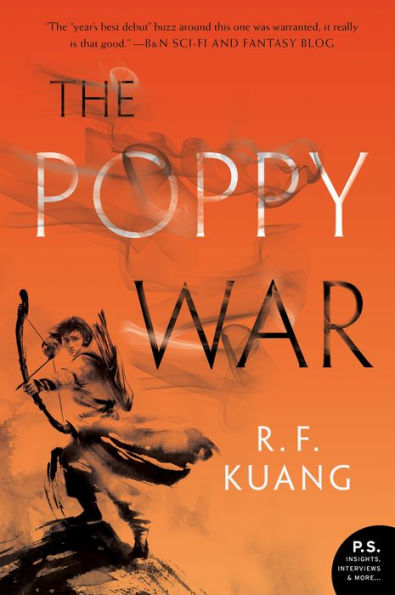
Kuang has said that protagonist Rin is based on Mao Zedong, with the Poppy War trilogy seeking to answer the question of “how does somebody go from being an irrelevant, backwater, peasant nobody to being a megalomaniac dictator capable of killing millions of people?” It’s even more difficult to reconcile that act of genocide with someone who grows up with a support system of friends and with a developed sense of empathy, but Kuang demonstrates how abuse and rage—here, in the form of the Phoenix’s devastating blaze—can become all-consuming.
Attolia, The Queen of Attolia (Megan Whalen Turner)
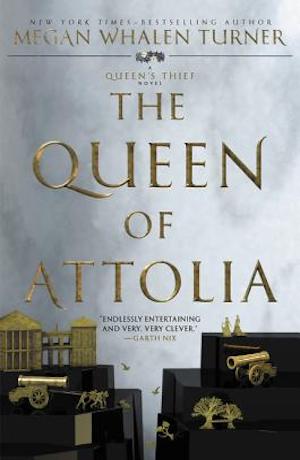
When the first-person accounts in The Queen’s Thief series are notoriously unreliable, one stretches one’s definition of narrator to include third-person. So, so, so—Attolia’s lovely but brutal queen’s reputation precedes her: When Eugenides first encounters her in The Thief, he has the audacity to say to her face that she may indeed be more beautiful than her rival, neighboring country Eddis’ queen, but Eddis is more kind. By the time that the sequel allows readers a peek inside Attolia’s mind, they have doubtless been primed to resent this coldly resolute ruler, who poisoned her would-be king at their wedding, and who opens the novel with an unforgivable act. But as the novel progresses and Attolia confronts her cruel choices in the name of maintaining her hold on the throne, it becomes clear that she is not some ice queen, but a young princess, forced into power by fate and faced with the impossible choice between letting men underestimate her or fear her.
Alice Prosperine, The Hazel Wood (Melissa Albert)
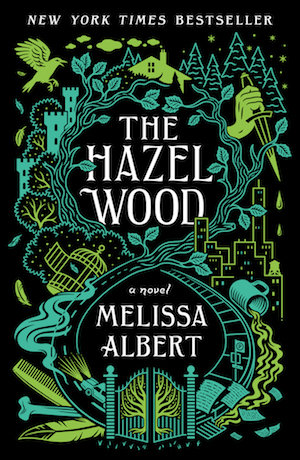
Seventeen-year-old Alice doesn’t let anyone get close, constantly drawing on an endless reserve of simmering resentment and burning anger that keeps her warm. But you would too if you had to constantly uproot your life, dogged by uncanny bad luck from town to temporary town. And when the only people who take an interest in her are just aiming for an intro with her estranged grandmother, cult classic Tales of the Hinterland author Althea Prosperpine, it’s no surprise that Alice doesn’t trust others’ intentions. But when her mother Ella disappears, Alice discovers that the Hinterland is very real… and that her dark pedigree is more tied up in its shadows than she could ever have imagined, forcing her to let others step up to the fire and decide if they want to stay.
Baru Cormorant, The Monster Baru Cormorant (Seth Dickinson)
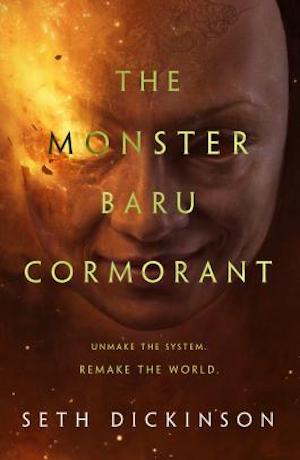
Don’t worry, Baru hates herself even more than you hate her. The island girl who enthusiastically submerged herself in the Empire of Masks’ education, culture, and extreme system of loyalty—even as it remade her home and murdered her father—shows a different mask to every person she meets. A rebel leader until her people trusted her with their dreams of a better future, and then she spends their lives to ascend toward the empire’s capital nation of Falcrest. A sociopath who gives other sociopaths the willies, she undercuts her own awe-inspiring reputation by drinking away her shame and guilt. Traitor, monster, tyrant, hot mess—Baru cannot keep track of who she is supposed to be, not even when she’s alone. But even as she stains her personal ledger with blood, there is one wrong that she will stubbornly right, hoping that it makes up for all of the collateral damage along the way.
Circe, Circe (Madeline Miller)
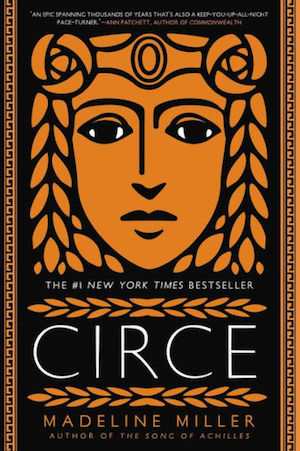
Sorceress Circe has the narrative deck stacked against her, in that she’s had centuries to build up an unflattering mythology thanks to Homer’s The Odyssey: witch, man-hater, killer. Miller’s reimagining at first does little to redeem this villainous figure; even when Circe recounts her birth and early years in her divine father’s court, she casts herself as pathetic and maligned. When she begins to come into her demigoddess powers, she uses them to selfish and petty ends, with devastating consequences that do not endear her to readers. But as the decades and centuries roll on within Circe’s infinite lifetime, it becomes clear that she suffers from cycles of abuse—from her dismissive family, from her lovers, from mortal men. In a novel about the double-sided gift and curse of transformation, Circe gets the opportunity to be everything that a woman, mortal or immortal, “shouldn’t” be—and then to grow and change into the person she wants to be.
Evelyn Caldwell, The Echo Wife (Sarah Gailey)
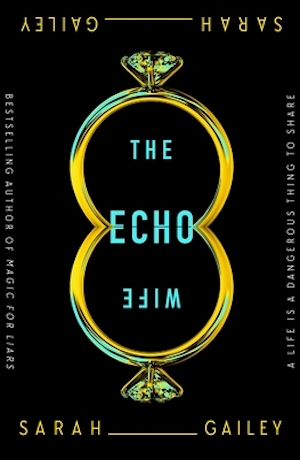
Dr. Evelyn Caldwell is formal to a fault—poised but impersonal, she cultivates professional relationships over friendships, dismissing social niceties over the comforting coldness of facts and results. Listening to her dispassionately describe her impending divorce, one could almost begin to understand why her soon-to-be-ex-husband Nathan made the taboo decision to clone her: another try at a softer, more compromising Evelyn to better flatter her partner’s needs. But when her clone Martine comes to Evelyn for desperate help, the doctor learns that the grass is not greener on the other side of the fence. What’s more, she is forced to confront the nature-versus-nurture that molded her into the imperfect woman who nonetheless is the best equipped to help, well, herself.
This list has helped Natalie Zutter in how she’ll approach reading an “unlikable” woman’s perspective going forward. Talk complicated female characters with her on Twitter!










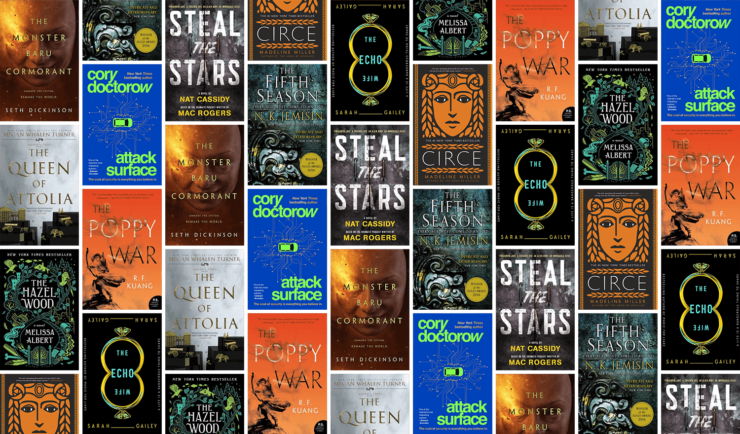
I wouldn’t call Circe a villain exactly. She’s clearly an impediment to Odysseus getting home and we are never told her reasons for enchanting his crew, sop for intruders perhaps? But once she and Odysseus come to terms she keeps her side of the bargain. Basically she just seems to want these men off her island thank you very much!
Since we’re talking about Marina Dahvan Headley’s Beowulf lately, we shouldn’t forget Grendel’s Mother– troll-woman or warrior? Monster or grieving mom? And also Headley’s modern retelling, The Mere Wife, with Grendel’s Mother as Dana the traumatized war veteran and Queen Wealhtheow as Willa the suburban trophy wife. Both women trying to protect their sons, but who are the heroes and who are the monsters?
(And let’s not forget the background Chorus of Willa’s mother and her elderly cronies, comrades-in-arms propping up the patriarchy for their own ends while under no illusions about the men it benefits.)
And now that I come to think of it, Irene of Attolia may have quite a bit in common with Beowulf‘s Modthryth– “Bad Queen Modthryth” in Heaney’s version. although Headley seems to have a sneaking sympathy for her as a princess who did unto men before they could do unto her. In any case, like Attolia, Modthryth made an unexpectedly happy marriage, and ended up respected and maybe even liked.
Bellis Coldwine.
@@@@@ 1, princessroxna:
I wouldn’t call Circe a villain exactly. She’s clearly an impediment to Odysseus getting home and we are never told her reasons for enchanting his crew, sop for intruders perhaps? But once she and Odysseus come to terms she keeps her side of the bargain. Basically she just seems to want these men off her island thank you very much!
Odysseus started his journey home by sacking a city. Just for the fun of it.
So Circe turned his men into swine. No pig has been known to rob, rape, torture, or burn anyone or anything. Sounds like prudence to me.
Circe one of my favourite books in 70 years of reading,and this iteration certainly my favourite heroine.She had humour and tenderness,integrity and strength…what of this equals villainess?
Briar Wilkes Blue, from Cherie Priest’s Boneshaker. Like her? No. Understand why she was as she was and would want her at my back in a fight? Oh, yes.